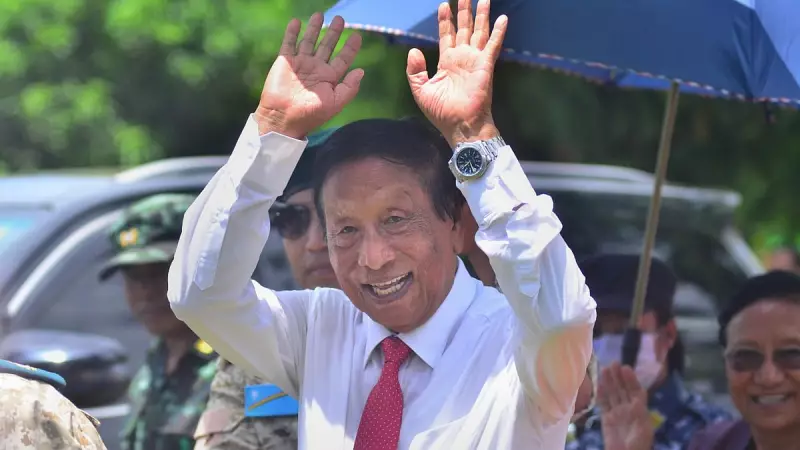
In a powerful display of unity and determination, thousands of Naga supporters gathered in Manipur as NSCN-IM chief Thuingaleng Muivah delivered a resolute message: the Naga flag and constitution remain absolutely non-negotiable in the ongoing peace process with the Indian government.
Massive Show of Strength in Manipur
The sprawling event witnessed an overwhelming turnout of Naga community members, creating a sea of supporters who came to hear their leader's crucial address. The massive gathering served as a clear demonstration of the widespread backing for the NSCN-IM's position on these critical sovereignty issues.
Muivah's Uncompromising Stance
Speaking with unwavering conviction, the 90-year-old Naga leader left no room for ambiguity regarding the group's core demands. "The Naga flag and Yehzabo (constitution) are the soul of the Naga people," Muivah declared, emphasizing that these symbols represent the very identity and aspirations of the Naga nation.
His speech highlighted the deep emotional and historical significance these symbols hold for the Naga people, tracing back to their long-standing struggle for self-determination and recognition.
Peace Process at Critical Juncture
The reaffirmation comes at a crucial moment in the decades-long peace negotiations between the NSCN-IM and the Indian government. The Framework Agreement signed in 2015 had raised hopes for a final resolution, but the flag and constitution issues have emerged as the primary sticking points preventing a comprehensive settlement.
Muivah's address made it clear that any final agreement must accommodate these fundamental elements of Naga identity and self-governance.
Historical Context and Significance
The Naga struggle for sovereignty predates India's independence, with the community maintaining a distinct identity and political aspirations for generations. The NSCN-IM has been engaged in peace talks with the Indian government since 1997, following a ceasefire agreement that ended decades of armed conflict.
The current impasse over the flag and constitution represents the culmination of years of negotiation, with both sides seeking a solution that honors Naga identity while maintaining India's constitutional integrity.
Regional Implications
The massive gathering in Manipur underscores the continuing significance of the Naga issue in Northeast Indian politics. The outcome of these negotiations will have far-reaching implications for regional stability and the political landscape of states with significant Naga populations.
As peace talks continue, Muivah's unequivocal statement sets the stage for what could be a defining moment in the long-standing Naga political movement.






